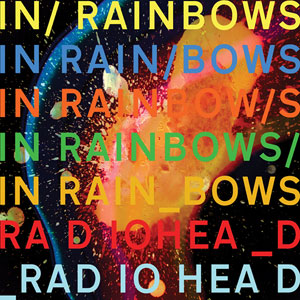There is no denying the fact that the world is marked by imbalance. Gender roles have been strictly codified by patriarchal society and have remained relatively unchanged for centuries. In 1975, Laura Mulvey made note of this in her article “Visual Pleasure and Narrative Cinema”. Though, she was merely focusing onHollywoodnarrative film, her words could be stretched to include every facet of the woman and her struggles for equality/subjectivity.
According to Mulvey: “…the male gaze projects its phantasy on to the female figure which is styled accordingly….women are simultaneously looked at and displayed, with their appearance coded for strong visual and erotic impact so that they can be said to connote to-be-looked-at-ness”. As a result, women hold the look of the male, play to it and thus signify male desire.
This definition of gender roles is clearly existent within the world of narrative cinema. However, it is presently being challenged by both male and female artists deeming to take a stand against these stereotypical and dangerous coding signifiers. Can the same be said for women in the music industry?
Women as Sexual Objects
Sex sells. There is no denying this fact. It is a tremendous marketing tool and fuels the insatiable cravings of a sex-obsessed society. Women are sexually objectified to maintain the strong patriarchal values that the world has been built on since the beginning of time. The Feminist movement made vast improvements during the 1960s because change was an acceptable and respected practice during this era. However, for as much as the 1960s accomplished, the Patriarchal establishment still reigns supreme. In essence, it is extremely difficult to challenge a system that has been set in stone for centuries.
There are many female singers present in the music industry. Many have great voices and maintain a strong subjectivity throughout their songs or performances. Artists such as Whitney Huston, Aretha Franklin and Reba McEntire are rarely criticized for their raunchy lyrics or fashions. The sole factor being is that they do not need to be vulgar or raunchy. They have been around for quite sometime and are respected on the merit of their talents alone. They have proven themselves. It is the younger generation of singers that are the most troublesome.
The Younger Generation of Singers
There have been many young artists that have started out as legitimate singers. Vowing to make it on the strength of their voice rather then the size of their body, artists begin their career with a dream. However, record companies place a lot of trust, time and money into an artist and if that particular singer’s record sales begin to dwindle, changes must ensue.
The most crucial aspect of this singer is no longer her voice. It has now become about her body and how she can sexualize herself to appeal to a large male audience (in hopes of obtaining fans that may not have been attracted to her music in the first place). If one would reminisce for a brief moment. Think about the artists that started off as innocent, wholesome singers and then abruptly transitioned into highly sexualized objects. Britney Spears, Christina Aguilera, Jessica Simpson, Mariah Carey (breast implants and all), Jewel, Fergie, Avril Lavigne and so on.
These artists will fabricate and state that they altered their look because they had personally changed inside. How naïve do these singers believe society is? There is no record company in this world (who has invested millions into this particular singer) that would allow one of its artists to alter their image for their own benefit. There is too much at risk. That is why there are executives sitting around a boardroom table for hours on end contemplating how they can better market their performer to the world. So when Christina Aguilera mentions that she became “dirrty” as a result of her maturation, one can just imagine the Public Relations group for Christina silently padding themselves on the back.
Music, Sex and Teenagers
The world is a highly sexually charged entity and sex is a key component for young adults. There is no denying this fact. Thus, it is appropriate to discuss the nature of sexuality with teenagers at an early age. However, it is when these spin doctors of the music industry begin to exploit sexuality for the purpose of record sales that it begins to become a problem.
These artists are role models to young females around the world. They respect them and want to emulate their every move. They are so enthralled by their idol that they begin to dress like them in hopes of being like them (unaware of the potential risks). Males, on the other hand, lustfully desire these singers. They place their gaze upon them and begin to objectify them. The fact that males sexualize these singers will only increase the chances of these males sexualizing these young females.
Patriarchal society is a dominant structure and will more then likely stand the test of time. There will be movements and pleas for change but the roles will more then likely never be reversed. In light of this belief, the longer women continue to be objectified and classified as sexual beings, the longer it will take to rid the world of these sexual images threatening the innocence of today’s youth.



